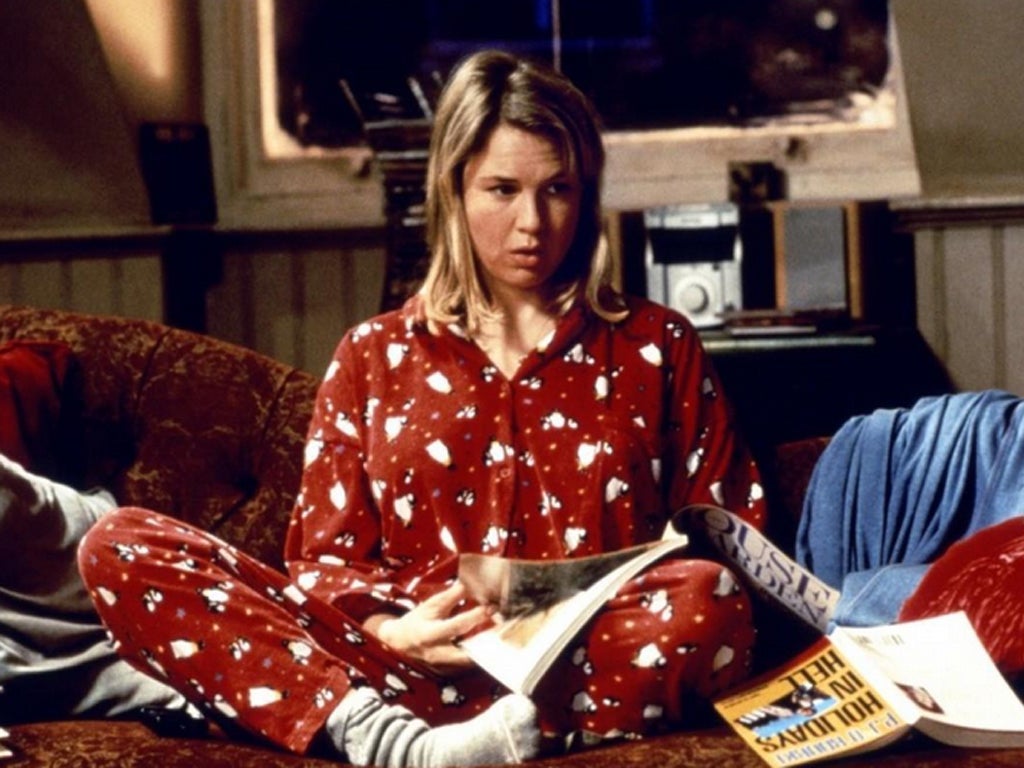Bridget Jones: If you need characters in books to be your friends, you’re not reading right
Saturday 1 June: Alcohol units 4 (so far), cigarettes 0, calories 1,683 (oops!!), references to “women readers” off the scale

Your support helps us to tell the story
From reproductive rights to climate change to Big Tech, The Independent is on the ground when the story is developing. Whether it's investigating the financials of Elon Musk's pro-Trump PAC or producing our latest documentary, 'The A Word', which shines a light on the American women fighting for reproductive rights, we know how important it is to parse out the facts from the messaging.
At such a critical moment in US history, we need reporters on the ground. Your donation allows us to keep sending journalists to speak to both sides of the story.
The Independent is trusted by Americans across the entire political spectrum. And unlike many other quality news outlets, we choose not to lock Americans out of our reporting and analysis with paywalls. We believe quality journalism should be available to everyone, paid for by those who can afford it.
Your support makes all the difference.Bridget Jones is back.
The third novel about the singleton and her escapades in Spanx and pinot will be titled Mad About the Boy and will be out in October. Cue a lot of v v annoying chat about what Jones means to “female readers”. What she means to male readers doesn’t come up. It is assumed that they’ll have nothing to say about Bridget in the way it is assumed female readers will have plenty. Indeed, male readers rarely get a look-in. They’re often just called “readers” and allowed to get on with reading books while women readers are observed, their literary diet endlessly picked over, as if they were exotic creatures.
Bridget’s return comes in a week in which women’s reading habits are under scrutiny once again. Claire Messud, author of The Woman Upstairs, an angry and brilliant novel about a furiously disillusioned teacher called Nora, got angry herself when a female journalist asked her: “I wouldn’t want to be friends with Nora, would you?” “For heaven’s sake, what kind of question is that?” Messud exploded. “Would you want to be friends with Humbert Humbert? Hamlet? Krapp? Oedipus? If you’re reading to find friends, you’re in deep trouble.” Fay Weldon then disagreed, arguing on Today that “women like friends and they want friends” and so read “for comfort”.
I don’t really know where to start with this, so here’s a list: Medea, Becky Sharp, Anna Karenina, Agrippina, Emma Bovary, the Marquise de Merteuil, Lisbeth Salander... You wouldn’t describe any of them as likeable, or want to add them as Facebook friends, but they are among the greatest characters ever to live on the page. Not nasty but simply annoying heroines can be enjoyable, too. I couldn’t bear Natasha in War and Peace but I’d hesitate to write off Tolstoy’s masterwork because I can’t imagine sharing a bottle of Rose with her. In the same way, I didn’t finish L’Etranger or Crime and Punishment and find myself wondering, Bridget-style, if Meursault or Raskolnikov might be fun on a date.
Given that 67 per cent of books sold in the UK are bought by women, it is understandable why publishers pander to what they think women want – girly covers and friendly heroines like Bridget. But they are wrong to think unlikeable women don’t sell. Look at Gone Girl – a repugnant female lead, an ugly black cover, a woman writer. And two million copies sold worldwide.
* At the risk of encouraging the Rolling Stones to keep touring for another 200 years, I worry that this might go down in music history as the decade of the Great Rock ‘n’ Roll Drought. Take Muse, one of the biggest live bands in the country. After setting light to the Emirates Stadium this week with their proggy hysteria and pyrotechnics, they held an after-party themed, apparently, on ironic debauchery. There were violinists playing rock anthems and dwarves handing round trays of lemon sherbet cut to look like lines of cocaine. It’s hardly Keith snorting his father’s ashes, or Ozzy biting the head off a bat.
Now the Arts Council plans to give a leg-up to aspiring Arctic Monkeys with a new £500,000 fund dedicated to indie and cutting-edge dance musicians. Applicants are required to submit a “clear business case”, prove their social networking skills and undergo a rigorous selection process. The successful few will be given grants of £5000 to £15,000 that can be used on anything to help them develop creatively (break out the lemon sherbet!) and become “commercially viable”. An evaluation report and a balanced budget must be provided in due course. And after a few years’ hard graft, they might even get a carriage clock.
I’m all for talent getting a helping hand, particularly one that doesn’t come with televised humiliation and Simon Cowell attached, but this sounds worryingly like the professionalization of the rockstar. Wheatgrass smoothies not groupies, business not excess. Whether good music can come out of balance sheets and sherbet – well, that remains to be heard.
Twitter: @alicevjones
Join our commenting forum
Join thought-provoking conversations, follow other Independent readers and see their replies
Comments